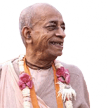Vedic Wisdom - an essential subject: Difference between revisions
(Created page with "Category:Essential Subjects <!----------------------- edit below this line -----------------------> <!------------------------ begin introduction text --------------------...") |
(Vanibot #0041: Moves Choose Another box to the end) |
||
| Line 2: | Line 2: | ||
<!----------------------- edit below this line -----------------------> | <!----------------------- edit below this line -----------------------> | ||
<!------------------------ begin introduction text ------------------------> | <!------------------------ begin introduction text ------------------------> | ||
The Supreme Personality of Godhead, Kṛṣṇa, is the essence of all Vedic wisdom. All knowledge emanates and originates from him. Vedic wisdom means to understand Kṛṣṇa philosophy. By having firm faith in such wisdom, one can attain the devotional loving affection towards Kṛṣṇa in the form of a proprietor, master, friend, son or lover. | |||
Srila Prabhupada's books, lectures, conversations and letters offer a comprehensive presentation of this essential subject as seen in the Vaniquotes '''[[Vaniquotes:Category:Vedic Wisdom|Vedic Wisdom]]''' category. An introduction from his books is given below in the following | Srila Prabhupada's books, lectures, conversations and letters offer a comprehensive presentation of this essential subject as seen in the Vaniquotes '''[[Vaniquotes:Category:Vedic Wisdom|Vedic Wisdom]]''' category. An introduction from his books is given below in the following 12 quotes. | ||
<!-------- end introduction text and don't touch next three lines ---------> | <!-------- end introduction text and don't touch next three lines ---------> | ||
---- | ---- | ||
== Quotes from Srila Prabhupada's books == | == Quotes from Srila Prabhupada's books == | ||
<!----------------- edit quote boxes below this line -----------------> | <!----------------- edit quote boxes below this line -----------------> | ||
{{VaniQuotebox| | {{VaniQuotebox|Srimad-Bhagavatam is the desire tree of Vedic wisdom. Veda itself means "the aggregate of knowledge." And whatever knowledge is required for human society is perfectly presented in Srimad-Bhagavatam|Śrīmad-Bhāgavatam is the desire tree of Vedic wisdom. Veda itself means "the aggregate of knowledge." And whatever knowledge is required for human society is perfectly presented in Śrīmad-Bhāgavatam. There are different branches of knowledge in the Vedic writings, including sociology, politics, medicine and military art. All these and other branches of knowledge are perfectly described in the Vedas. '''(Nectar of Devotion, Chapter 12)'''}} | ||
{{VaniQuotebox| | {{VaniQuotebox|Brahmaji is the highest authority in Vedic wisdom, and his assertion in this connection is therefore the supreme information|The entire material manifestation is situated in Nārāyaṇa, the Supreme Personality of Godhead. The impersonal conception of the supreme truth is due to lack of knowledge only, and this fact is clearly explained by Brahmājī, who is supposed to be the creator of the universal affairs. Brahmājī is the highest authority in Vedic wisdom, and his assertion in this connection is therefore the supreme information. '''(Śrīmad-Bhāgavatam 2.6.31)'''}} | ||
{{VaniQuotebox| | {{VaniQuotebox|By brahminical culture, the development of the dormant qualities of goodness, namely truthfulness, equanimity, sense control, forbearance, simplicity, general knowledge, transcendental knowledge, & firm faith in the Vedic wisdom, one can become a brahmana|By brahminical culture, the development of the dormant qualities of goodness, namely truthfulness, equanimity, sense control, forbearance, simplicity, general knowledge, transcendental knowledge, and firm faith in the Vedic wisdom, one can become a brāhmaṇa and thus see the Lord as He is. And after surpassing the brahminical perfection, one has to become a devotee of the Lord so that His loving affection in the form of proprietor, master, friend, son and lover can be transcendentally achieved. '''(Śrīmad-Bhāgavatam 1.14.34)'''}} | ||
{{VaniQuotebox| | {{VaniQuotebox|Due to material defects, the naked eye cannot see anything properly. One cannot see properly unless one has heard from a superior source, and the highest source is the Vedic wisdom, which is spoken by the Lord Himself|Due to material defects, the naked eye cannot see anything properly. One cannot see properly unless one has heard from a superior source, and the highest source is the Vedic wisdom, which is spoken by the Lord Himself. Vedic truths are coming in disciplic succession from the Lord to Brahmā, from Brahmā to Nārada, from Nārada to Vyāsa, and from Vyāsa to many of his disciples. '''(Sri Isopaniṣad, Mantra 6)'''}} | ||
{{VaniQuotebox| | {{VaniQuotebox|If someone is fortunate enough to understand Bhagavad-gita in that line of disciplic succession, without motivated interpretation, then he surpasses all studies of Vedic wisdom, and all scriptures of the world|If someone is fortunate enough to understand Bhagavad-gītā in that line of disciplic succession, without motivated interpretation, then he surpasses all studies of Vedic wisdom, and all scriptures of the world. One will find in the Bhagavad-gītā all that is contained in other scriptures, but the reader will also find things which are not to be found elsewhere. '''(Bhagavad-gītā 1.1)'''}} | ||
{{VaniQuotebox| | {{VaniQuotebox|In Satyaloka the inhabitants are fully cognizant of Vedic wisdom, and thus the mystic cloud of material energy is cleared. Therefore they are known as the Vedas personified|In Satyaloka the inhabitants are fully cognizant of Vedic wisdom, and thus the mystic cloud of material energy is cleared. Therefore they are known as the Vedas personified. Such persons, being fully aware of knowledge both mundane and transcendental, have no interest in either the mundane or transcendental worlds. They are practically desireless devotees. In the mundane world they have nothing to achieve, and in the transcendental world they are full in themselves. '''(Śrīmad-Bhāgavatam 1.19.23)'''}} | ||
{{VaniQuotebox| | {{VaniQuotebox|No one but the Supreme Lord can become well versed in all the branches of Vedic wisdom simply by hearing once from his teacher|No one but the Supreme Lord can become well versed in all the branches of Vedic wisdom simply by hearing once from his teacher. Nor can anyone bring a dead body back to life after the soul has already gone to the region of Yamarāja. But Lord Kṛṣṇa ventured to the planet of Yamaloka and found the dead son of His teacher and brought him back to his father as a reward for the instructions received. The Lord is constitutionally well versed in all the Vedas. '''(Śrīmad-Bhāgavatam 3.3.2)'''}} | ||
{{VaniQuotebox| | {{VaniQuotebox|One who is not inclined to the Vedic wisdom but to mundane affairs cannot be called a brahmana, even if he is born of a brahmana family or father. To have a brahmana father does not qualify one as a brahmana|One who is not inclined to the Vedic wisdom but to mundane affairs cannot be called a brāhmaṇa, even if he is born of a brāhmaṇa family or father. To have a brāhmaṇa father does not qualify one as a brāhmaṇa. The main qualification of a brāhmaṇa is to be inclined to the Vedic wisdom. The Vedas are situated on the mouth of the Lord, and therefore anyone who is inclined to the Vedic wisdom is certainly situated on the mouth of the Lord, and he is a brāhmaṇa. '''(Śrīmad-Bhāgavatam 3.6.30)'''}} | ||
{{VaniQuotebox|The human race should take the Vedic wisdom of Sri Isopanisad and not quarrel over material possessions. One must be satisfied with whatever privileges are given to him by the mercy of the Lord|Śrī Īśopaniṣad cannot give advice to the cats and dogs, but it can deliver the message of Godhead to man through the bona fide ācāryas (holy teachers). The human race should take the Vedic wisdom of Śrī Īśopaniṣad and not quarrel over material possessions. One must be satisfied with whatever privileges are given to him by the mercy of the Lord. There can be no peace if the communists or capitalists or any other party claims proprietorship over the resources of nature, which are entirely the property of the Lord. '''(Sri Isopaniṣad, Mantra 1)'''}} | |||
{{VaniQuotebox|The sruteksita path is to hear from bona fide devotees who are conversant with Vedic wisdom, free from mundane sentiment|The śrutekṣita path is to hear from bona fide devotees who are conversant with Vedic wisdom, free from mundane sentiment. By this bona fide hearing process, the neophyte devotee becomes cleansed of all material rubbish, and thus he becomes attached to one of the many transcendental forms of the Lord, as described in the Vedas. '''(Śrīmad-Bhāgavatam 3.9.11)'''}} | |||
{{VaniQuotebox|The Vedic wisdom encourages self-realization on the basis of the nonexistence of the material body|The Vedic wisdom encourages self-realization on the basis of the nonexistence of the material body. Therefore, in either case, whether one believes in the existence of the soul or one does not believe in the existence of the soul, there is no cause for lamentation for loss of the body. '''(Bhagavad-gītā 2.28)'''}} | |||
{{VaniQuotebox|Vedanta is the last word in Vedic wisdom, and the author and knower of the Vedanta philosophy is Lord Krsna; and the highest Vedantist is the great soul who takes pleasure in chanting the holy name of the Lord|In this Age of Kali, most of the population is foolish and not adequately educated to understand Vedānta philosophy; the best purpose of Vedānta philosophy is served by inoffensively chanting the holy name of the Lord. Vedānta is the last word in Vedic wisdom, and the author and knower of the Vedānta philosophy is Lord Kṛṣṇa; and the highest Vedāntist is the great soul who takes pleasure in chanting the holy name of the Lord. That is the ultimate purpose of all Vedic mysticism. '''(Bhagavad-gītā 2.46)'''}} | |||
<!----------------- edit quote boxes above this line -----------------> | <!----------------- edit quote boxes above this line -----------------> | ||
| Line 31: | Line 39: | ||
'''Vedic Wisdom - [[Vaniquotes:Category:Vedic Wisdom|explore more within this category]]'''. | '''Vedic Wisdom - [[Vaniquotes:Category:Vedic Wisdom|explore more within this category]]'''. | ||
{{EsentialSubjectTotal}} | {{EsentialSubjectTotal}} | ||
<div style="float:left;"> | |||
{{EssentialSubjectnav}} | |||
</div> | |||
__NOTOC__ | __NOTOC__ | ||
__NOEDITSECTION__ | __NOEDITSECTION__ | ||
Latest revision as of 18:08, 22 November 2020
The Supreme Personality of Godhead, Kṛṣṇa, is the essence of all Vedic wisdom. All knowledge emanates and originates from him. Vedic wisdom means to understand Kṛṣṇa philosophy. By having firm faith in such wisdom, one can attain the devotional loving affection towards Kṛṣṇa in the form of a proprietor, master, friend, son or lover.
Srila Prabhupada's books, lectures, conversations and letters offer a comprehensive presentation of this essential subject as seen in the Vaniquotes Vedic Wisdom category. An introduction from his books is given below in the following 12 quotes.
Quotes from Srila Prabhupada's books
Vedic Wisdom - explore more within this category.
Vanipedia has now over 903 introductory articles compiled from Srila Prabhupada's books under the series titled Essential Subjects. All these articles can be seen in the Table of Content on the right side of this article and also here in this Umbrella Category. Browse through them to relish the breadth and depth of Srila Prabhupada's teachings - There is a subject for everyone.











